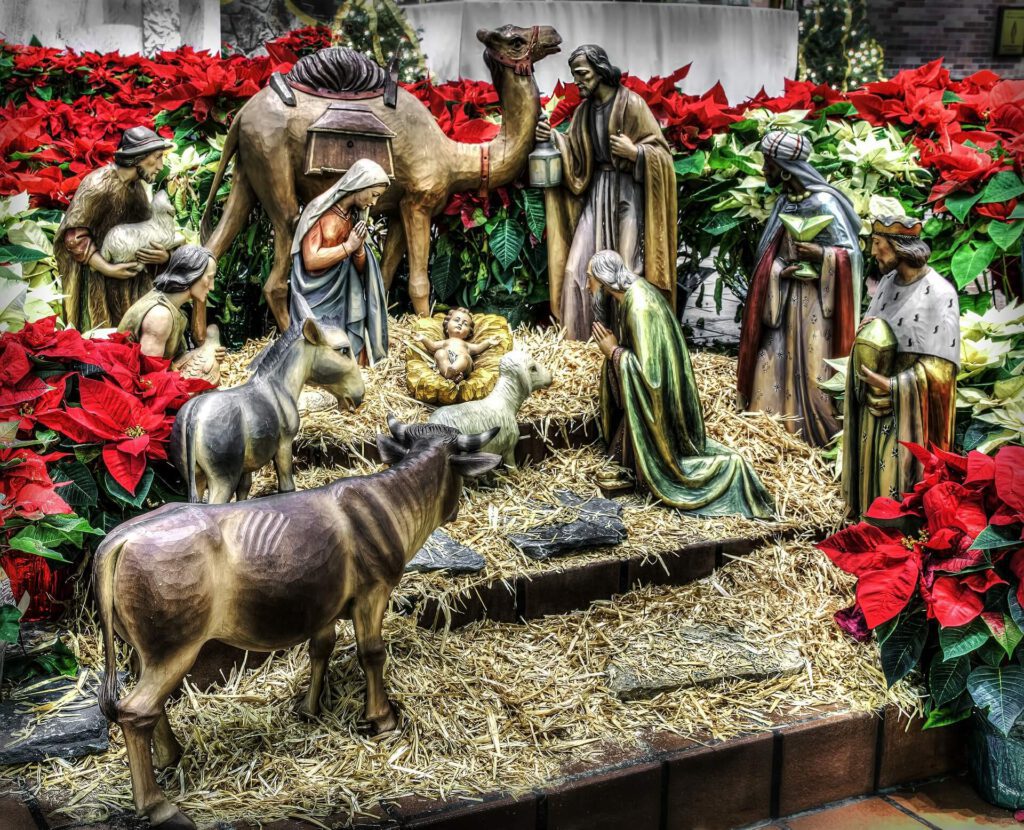The greatest trick the Devil ever pulled, according to criminal mastermind Keyser Soze of The Usual Suspects, was convincing people he didn’t exist. Maybe another in Lucifer’s devilish bag of tricks was getting us to think that Christmas is just for kids – hence the annual rituals of happy snaps with Santa and gooey nativity scenes to the exclusion of what else the event might have to offer.
And, it turns out, Christmas isn’t just for little kids either but, as Fairfax journalist Alan Stokes confessed recently, also for the “cute and chubby 50-something kids” who retain a fondness for the season long after their adolescent offspring have decided they’re too old for all this Christmas claptrap.
But after the carnage of the last year, the sentimental mush that typically marks Christmas just won’t cut it. 2015 may not have been as much of a downer as 2014’s horror-show of missing planes and Ebola outbreaks but this year has had its fair share of grief – from terror attacks in the heart of Paris and Beirut, drowned toddlers washed up on the Turkish coast, a devastating earthquake in Nepal, and the Syrian crisis spilling millions of desperate refugees into Europe. And even with a climate deal finally hammered out between industrialised nations, we’re still on course for a dangerously warm planet.

That kind of track record makes it hard to utter lines like “peace on earth” and “goodwill to mankind” without wincing at the gulf between our hopes and reality. We can, of course, continue to cling to the forced jolliness of Christmas in defiance of grim news on the ground but doing so takes, increasingly, a white-knuckled grip.
Perhaps it’s time, then, to prise ourselves away from the kiddie version of Christmas. If we do, we just might find a Christmas story fit for our troubled times. For whatever you believe of the truth, or otherwise, of that ancient story, the accounts of that first Christmas are nothing if not harsh, which probably explains why certain details are often redacted from the more palatable tale of angelic choirs and wise kings bearing gifts.
The pregnant Mary is almost abandoned by Joseph, her betrothed. King Herod, spooked by the rumour Jesus rivals his claim to the throne, puts out a hit on the baby’s life, necessitating the new family’s escape to Egypt as refugees. Then, infuriated that the child has escaped, Herod orders the massacre of all toddlers in and around Bethlehem. Good luck sugar-coating that incident.
Whether you’re a believer or a cynic, you have to grant that this story can cope with both the frailty and depravity of human nature. The lengths to which Herod goes to retain power would not seem inordinate when judged against any tyrant of history. While we’re told Joseph is an honourable man, it’s clear he’d rather excuse himself from the whole, weird affair.
But the grander biblical story, of which this episode in Bethlehem is just a part, isn’t content to merely indict these two characters. It has the audacity to claim that all of us fall somewhere between the Herods and Josephs of the world: that we all fail our high-minded ideals as well as prove all too willing, at times, to sacrifice others in the service of our own interests.
We need a Christmas story fit for grown-ups.
And yet despite the parade of human flaws, whether on offer in the biblical drama or on the world stage today, we’re told Jesus is “Emmanuel” – “God with us”. This god doesn’t look down upon human tragedy, but is with us in the midst of it. And he’ll go on, as suggested by the Easter story, to offer himself as payment for the waywardness of all.
“The hopes and fears of all the years are met in thee tonight.” The line from the carol suggests that there’s more to the ancient story of Christmas than quaint farm animals gathered around a baby in a manger; that Jesus’ birth, in fact, heralds the eventual doom of every illness, tragedy, disaster, and all that plagues us and our world. If the story happens to be true, it means nothing less than the final renewal of all things.
Of course, many will charge that this Christmas story is the ultimate childish fantasy, replete with happy endings and the triumph of good over evil. Don’t we want our children to be able to face the world as it is rather than as we wish it would be?
Well, yes, which is the best reason to retire the fake cheeriness of the Christmas story we presently tell. The frivolity of the silly season, where sleigh bells and cash registers alike ring out throughout the land, feels awfully like Nero fiddling while Rome burns.
We need a Christmas story fit for grown-ups, one that can cope with the horror of the world and is equally unflinching in the face of the darkness of the human heart. May that kind of tale surprise you this season.
Dr Justine Toh is Senior Research Fellow at the Centre for Public Christianity.
This article first appeared in the Canberra Times.